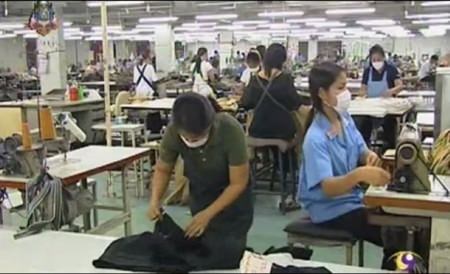BANGKOK, June 27 –Thailand’s Labour Ministry was not sitting idly by but was putting efforts to solving human trafficking and forced labour problems and to also ensure that migrant workers are protected under Thai law as well as treated equal to Thai workers, said Panich Chitchang, director general of the Ministry’s Labour Protection and Welfare Department, on Friday.
In defending Thailand following accusations of human trafficking, slavery and human rights abuses and the downgrading of the kingdom by the US on June 20, Mr Panich said his department is determined to solve the problem and to also ensure that there was no forced labour nor child labour.

Migrant workers, no matter what nationality, would be treated equal to Thai workers if they entered Thailand legally, he said.
They would also enjoy protection under the Labour Protection Act BE 2541 just like other Thai workers.
Mr Panich’s comments were made after Washington downgraded Thailand to Tier 3, the lowest level, from Tier 2 in its annual Trafficking in Persons (TIP) report.
The report has upset Thai authorities and businessmen amid fears that it could negatively affect this country’s trade and export.
The Labour Protection and Welfare Department was scheduled to organise the 28th National Safety Week of Thailand between July 3 – 5 at BITEC on Bangkok’s outskirts, aimed at creating consciousness among employers and employees about safety at the workplace.
The fair is also expected to boost Thailand’s competitiveness and foreigners’ confidence for investment after the ASEAN Economic Community is implemented at end-2015.
As the National Council for Peace and Order was putting efforts to regulate migrant workers, Chiang Mai governor Suriya Prasartbundit said information gathered from several government agencies showed that more than 60,000 migrant workers were officially registered in 2013.
Out of that total, 94 per cent were Myanmar citizens.
Statistics showed by security agencies and others found that there were more than 100,000 migrant workers, both registered and illegal in Thailand, in line with complaints lodged by people to relevant agencies and Mr Suriya.
Concerned about safety, as many migrant workers live in community areas, the Chiang Mai provincial labour office has been asked to urgently cooperate with security agencies in compiling information on the exact number of migrant workers residing in the province.




